Gambia
After 22 years in charge, the world is yet to be furnished with full details of the terms under which Yahya Jammeh accepted to fly out of The Gambia after last effort mediation by Guinea’s Alpha Conde and Mauritania’s Ould Abdel Aziz.
Jammeh officially became the second President of the Gambia, whiles his successor, Adama Barrow becomes the third. Barrow and the first leader, Dawda Jawara sandwich the Jammeh regime which was reportedly characterized by rights abuse and largely deemed as autocratic.
Barrow and the opposition coalition have the regional political bloc, Economic Community of West African States (ECOWAS) to thank for timely decisions and mediation efforts.
The ECOWAS, the African Union (AU), the United Nations (UN), and other groups also deserve commendation on their show of support for the ECOWAS position and for the need to respect the will of the Gambian electorate as expressed in the December 1, 2016 polls.
Jammeh is gone, Barrow was sworn into office by president of The Gambia law society in Dakar. Maybe out of mistrust for what Jammeh has left behind, Barrow is yet to return home as ECOWAS forces who entered Banjul after Jammeh’s exit try to guarantee his safety.
Having followed the Gambian situation unfold, we collate some key steps experts have tasked the Barrow led administration to focus on as he returns home to take over the reigns of the ‘Smiling Coast’ of Africa as Commander-in-chief of its Armed Forces and leader of the nation.
SUGGESTED READING Why Africa’s ‘smiling coast’ is referred to as ‘The Gambia’
The Army and Security
Security was the main reason he (Barrow) had to be sworn in away from Banjul but before that, it was the reason ECOWAS decided to take him out of the Gambia as tensions kept rising in the lead up to the expiration of Jammeh’s term.
After over two decades as leader of the Armed Forces, Jammeh must have loyalists within the Army however small it maybe and it is time Barrow secures the security of nationals who remained and for those returning after fleeing the uncertainty.
Security will also be at the heart of whether or not the tourists that fled the country will return anytime soon to the ‘Smiling Coast.’ The new government has the regional forces helping to ensure the ‘coast is clear’ and all Gambians are safe.
Economy
Closely tied to security is the issue of the economy. The West African country largely depends on tourism for much of its foreign exchange. As a small economy it has largely been hinged on agriculture, industry and tourism over the years.
The Gambia’s economy is characterized by traditional subsistence agriculture, a historic reliance on peanuts or groundnuts for export earnings, a re-export trade built up around its ocean port, low import duties, minimal administrative procedures, a fluctuating exchange rate with no exchange controls, and a significant tourism industry.
It is for the Barrow led government to explore ways of attracting investments and also to diversify the economy in order to raise the living conditions of the ordinary Gambian.
SUGGESTED READING Ten facts about Sheikh Professor Alhaji Yahya A. J. J. Jammeh Babili Mansa
The National Assembly
The country’s legislature is another area that Barrow will have to look at. African democracies are largely built on three arms, the Presidency (Executive), the Legislature and Judiciary. Gambia under Jammeh saw the executive arm largely controlling the other two.
The last act of the National Assembly before Jammeh left was to have okayed a state of emergency and granted Jammeh a 90 day mandate extension – of course that could not hold but Barrow needs to find a way to effectively work with that arm of government.
The National Assembly on Tuesday revoked the state of emergency and apologized for allowing it to be imposed in the first place.
#Gambia's parliament revokes state of emergency controversially passed last week. A member of ex-Prez Jammeh's party apologized for it.
— Umaru Fofana (@UmaruFofana) January 24, 2017
Diplomacy
At the level of diplomacy, Jammeh’s refusal to quit has endeared Barrow to a lot of diplomatic goodwill from ECOWAS through to the African Union and the United Nations, everyone seems to affirm their readiness to work with Barrow not Jammeh.
Indeed, Barrow’s first diplomatic engagement as President will be to the AU Heads of State summit in Ethiopia late this month. Most development partners like the European Union have also met with Barrow and promised to continue mutual engagement.
The government is also fortunate to have had the backing of a number of Jammeh’s ambassadors who recognized the victory of Barrow very early on and went as far as impress on Jammeh to accept the ‘will of the people.’
The Gambia has won the global spotlight all through the crisis and the administration must make the best use of the exposure by doing things right.
Undoing some part of Jammeh
During his time in charge, Jammeh put in a lot of effort to sever ties with some international institutions. The British Commonwealth was one such. In 2013 The Gambia pulled out of the group according to Jammeh in order to ‘break away from its colonial past.’
The Commonwealth as a group has benefits that member countries and their citizens enjoy and the Barrow government has already been invited to return.
Having left the Commonwealth, Jammeh led the country into the Organization of Islamic Countries (OIC). With a predominantly Islamic population, remaining in the OIC would continue to benefit The Gambia.
Jammeh’s next international withdrawal was from the International Criminal Court (ICC). The former government described the ICC as an International Caucasian Court that targeted Africans as reason for the pullout. Barrow has already said he will keep the Gambia in the ICC.
SUGGESTED READING Jammeh bids The Gambia goodbye
Other Issues
Other issues Barrow will have to fix include issues of looking into the issues of political prisoners, rebuilding the legal system of the country. The judicial structure is another arm of the Gambia that could have thrown the crisis out of gear.
The lack of judges to sit on Jammeh’s poll petition and also to sit on his application to halt Barrow’s investiture put pressure on Jammeh to quit. The lack of judges is largely premised on his preference for importing judges for the Supreme Court. Barrow must build the capacity of local judges to sit at the apex court.
It is assuring that Jammeh irrespective of what he took with him whiles leaving is away from the West African sub region. Whatever are the rebuilding plans of Barrow and his team, they must act fast and decisively now that the global spotlight is still on the ‘Smiling Coast.’



![[Analysis] Post-Jammeh Gambia – what next for President Adama Barrow?](https://static.euronews.com/articles/355894/400x225_355894.jpg)

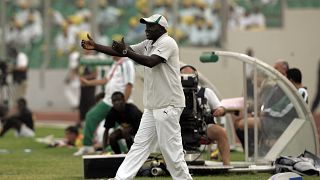

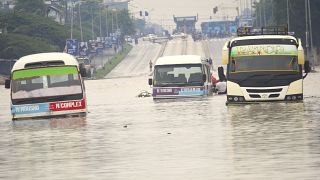
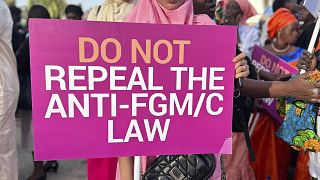
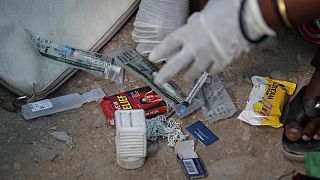
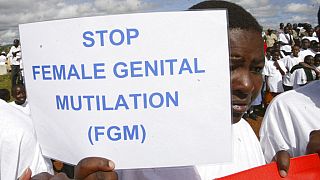
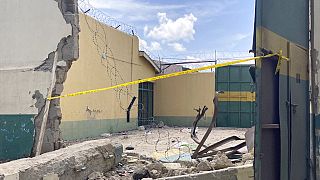
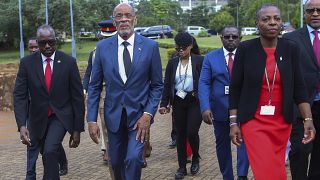
Go to video
Segun Aremu: Nigerian traditional monarch shot dead, wife kidnapped
01:12
US: Blinken lands in Angola
Go to video
AFCON 2023: Saintfiet is no longer Gambia coach
01:24
U.S. Secretary of state says Nigeria “essential” to global future
01:06
AFCON: Cameroon through to last-16 after win over Gambia
Go to video
Wooh sends Cameroon into Africa Cup last 16